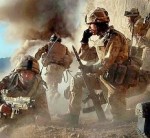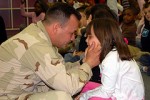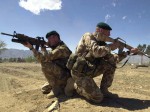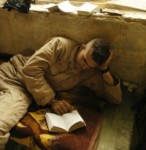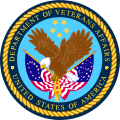Warriors walking off the battlefields of war are far stronger than before walking on. They must only remember their strength.
Unknown
With ever increasing numbers of Troops and their loved ones becoming victims of War Trauma, this Nation is rapidly approaching a crisis of major proportions. The following Program will greatly assist the Military/Department of Defense and the Department of Veterans Affairs in overcoming this challenge.
The Combat Warrior Support Program is focused on Active Duty Military Personnel, and yet will shape the future of all Combat Veterans and their Families. It is critical for our Wounded Warriors to understand the destructive impact of combat stress and in so doing, develop lifelong adaptive tools that will productively shape their future.
At present, there are simply not enough professionally trained combat trauma clinicians and not enough time for “conventional approach” training of the numbers needed to stem the rising tide, the impending Tsunami of burgeoning Combat Stress injuries being sustained by today’s Warriors.
Our young Soldiers will not and cannot come forward for help. Like it or not, there exists a prevalent stigma (disgrace) of “Psychological Weakness” in anyone seeking assistance for Combat Stress Reactions. Soldiers depend upon each other, willingly die to protect each other and will not break their Trust Bond, nor risk the disgrace of dishonor by admitting a psychological wound. They are left to endure this suffering while longing for an answer to their pain.
Army Rangers and Marines share the slogan, “Leave no one behind!” We now have the Mission of bringing our psychologically wounded Troops home, all of them. And since they cannot come to us, we must go to them. The Combat Warrior Support Program does just that.
The concept of this program is to “Reach Combat Soldiers through Combat Soldiers”; to use their Warrior Trust Bond as a means of breaking down and transforming the misperceived stigma of PTSD-Weakness into the acceptance of Normalcy, while reinforcing and building upon their individual strength as a Warrior.
In so doing, our Soldiers will develop the understanding of how to overcome and adapt to “Who” they have now become. War changes everyone. How a Soldier lives his or her life after walking off the battlefield depends on self-awareness, self-acceptance, dependable/professional support and implementing the proper psychological tools. Once firmly in place, these skills result in a clear understanding of “cause” and effectively addresses the sources of destructive, emotional responses.
Two Available Resources:
- Newly Enlisted Soldiers.
- Seasoned Combat Soldiers.
Newly Enlisted Soldiers: (Those selected for the program)
- Complete Basic Training.
- Complete Advanced Individual (Combat Arms) Training
- Attend a 3 week (21 Day) intensive psychological training program in Combat Trauma.
- Soldiers are then given a designated MOS specialty identifier as a Combat Trauma Specialist. (CTS)
Seasoned Combat Soldiers: (E-5s and up, “Mandatory or Senior NCOs”)
- Attend a 3 week (21 days) intensive psychological training program in Combat Trauma.
- Training will be accomplished during the Pre-Deployment readiness period.
- Soldiers are then given a designated MOS specialty identifier as a Combat Trauma Specialist (CTS). The “TITLE” will break the stigma of combat stress as a weakness.
Assignment and Duties of Combat Trauma Specialist:
- The program begins with one CT Specialist EMBEDDED into each Platoon (approx. 60 to 80 Soldiers) and actively participating in combat duties, as do the Platoon’s Medics, assigned to and working closely with those Medics to care for their Platoon Members’ Psychological Health Issues.
- Eventually, one CT Specialist will be assigned to each Squad. Ideally one CT Specialist for each Medic.
- Combat Trauma Specialists communicate directly to a Trained and licensed Team Leader: A “Licensed” Psychiatric Physician’s Assistant, Psychologist, Psychiatric Nurse, Chaplin via a Real-Time, Secure, Teleconferencing communications link.
- Note: This com-link will be with the Base from which the Soldiers were deployed and will return. Thus establishing and reinforcing the Trust factor between Combat Soldiers and Clinicians.
- In Severe Trauma cases, the Down-Range Soldiers (clients/patients) may communicate directly with the Licensed Team Leader in real time, Secure Teleconferencing at the bases from which they were deployed.
The Advantages of having a Seasoned Combat Soldier as a Combat Trauma Medic:
This program includes Company level Line Officers as Combat Trauma Specialists, to handle Warrant and Commissioned Office Combat Stress cases. This maintains the balance of enlisted talking with enlisted.
- An unparalleled Trust Bond is “already” established within every military unit. The unit’s Medic and, by extension, its Combat Trauma Specialist will be already accepted and respected; i.e.: there will be no Trust Bond barriers to break.
- Existing Combat-Experienced Enlisted and NCO personnel will be easier to recruit due to a prevalence of survivor guilt and/or an overwhelming desire to help their Brothers and Sisters.
- Seasoned Troops understand, first hand, the results of Combat Stress and consequently their opinions will be respected when emotions that are related to Combat are being discussed.
- At the Squad Leader (E-5) level, the program will greatly assist in reducing their own Combat Stress. This applies to Line NCOs and Officers as well.
- Combat Trauma Specialists will have the authority to communicate on a confidential bases with Line Officers and Senior NCOs without consequence when the CT Specialist evaluates that an Officer or NCO’s judgment is impaired due to Combat Stress.
- The program gives immediate assistance to those responsible for the lives of others; E-5s through Senior NCOs. This is a critical concern at this time.
- With Senior NCOs on board as Combat Trauma Technicians, the full spectrum stigma most commonly associated with Combat Stress Reactions (aka: PTSD) will be quickly eliminated. The NCO’s Promotions will depend on performance reviews.
Please Note: Actual day by day course lesson plans for this Pilot Program is now in progress by expert military consultants in this field. We invite your comments.
Combat Warrior Support Program Course Outline:
- Primal Side of Human Nature: Brain physiology and discussion of what emotions are involved. How the Primal Side is nurtured in boot camp, unleashed in battle in order to survive and then must be brought under control. Techniques/Tools for control in order to Re-Map the brain.
- The Warrior World and the Civilian World: Understanding the conflict of these two worlds and how to cope with it. Discussions of the effects of conflict such as depression.
- Killing: The emotional impact of killing another human being. The issues of killing women and children. The moral dissonance (conflict) that occurs. The desire to continue killing. The Guilt over not ever killing enough of the enemy and why. Developing a sense of “It’s OK to feel bad about killing; that’s normal”. “You must in fact continue doing it, but it’s good to understand the emotions involved”.
- Guilt: The guilt over making a decision that ended in the death or injury of a fellow Warrior. Things you could have done but didn’t do. The guilt over feeling you didn’t have the ability to stop something that resulted tragically.
- Survivor Guilt: How it’s normal to feel guilty for being stateside while your unit is deployed. How it’s normal to feel guilty to be alive when your friends are dead. Why you didn’t get “Hit” when your friends did.
- Loss: How it’s normal to feel loss over the death of the best friends you’ve ever had. Stages of grieving are covered and explained in detail.
- Death and Suicide: Explain the obvious, how death is an accepted part of a Warrior’s Creed. How you feel cheated not to die when your fellow Soldier is killed. Understanding the normalcy of these feelings. Understanding the uniqueness of Suicide to a Warrior. Death before Dishonor. How it is not what your Brothers and Sisters want for you to end your life, and yet discuss the severe physical and emotional pain that goes along with war experiences. For some the pain is too great.
- Trust: The degrees and/or levels of Trust. How trust is earned and yet a high level of tolerance is needed in civilian life. Discuss methods of evaluating trust and establishing boundaries for self-protection.
- Friendship: Goes hand in hand with Trust, but this topic would discuss civilian friendship and especially address the family and/or relationships with others. Again discussing false expectations and self-defeating standards.
- War Itself: Discussing the atrocities of war. Participating in the atrocities of war. Mutilation and viciousness in battle. The effects of being in a foreign country, living in a life threatening environment, watching death and destruction and never expecting to make it back alive.
- The Anti-Climatic Return Home: How to adapt to disappointment with family and previous friends. The feelings of not belonging to anything but the Military and Military Family Unit. Feelings of abandonment and how to cope with that.
- Becoming a New Individual: Using your Warrior Skills to adapt to civilian society and relying on your strength as a Warrior to overcome any problem without violence. Developing a Vision for the future and not expecting only to die in battle.
- Understanding Modalities: Combat Trauma Specialists will be given a review of the various modalities that are currently working with positive results. This is to assist Team Leader Clinician/Combat Trauma Specialist. Such Modalities as Reality Based Cognitive Behavioral Therapy (changing thinking patterns changes behavior) and Exposure Therapy (revisiting traumatic events and desensitizing) Also implementing Tools such as pausing for 3 seconds before reacting (mental stop). Keep it Simple.
- Substance Abuse: Building upon the physiology discussions, an explanation of chemical abuse and dependency to escape from and kill pain brought on by Combat; self-medication.
Advantages of Program:
- This is a continual support system and sets up acceptance for future counseling in the Military or VA Systems.
- The Program Teams up Licensed Clinicians, Medics and CT Specialists to address Combat Trauma, Down-Range and Stateside.
- The Program creates accessibility for future treatment in extreme break-down (emergency room) cases.
- Creates an understanding and acceptance that Combat Trauma is a normal reaction to war, that if understood and addressed early on, need not necessarily “snow-ball” into a serious problem, like PTSD.
- Eliminates the stigma and misconception of weakness due to the natural stresses of battle.
- Promotes communications between Soldiers and Clinicians; Troops will come to perceive talking about Combat Stress as a normal activity of their military life. Some researchers state that more than 70% of the severe PTSD cases could be avoided with advanced education and tool implementation.
- If the program uses newly inducted Troops, they will be inoculated (prior to combat) against being blind-sided by emotions that if left unchecked and unaddressed can and will destroy their lives. Pre-education in Combat Trauma will allow them far greater resilience.
- THE PROGRAM STAYS ARMY INTERNAL! The Army solves its own problems. Combat Soldiers helping Combat Soldiers! We help our own! We leave no one behind!
- The program is inexpensive compared to hundreds of thousands of future claims, untold suicides, homicides, family abuse and substance abuse by our young Soldiers.
- The program makes Stateside Clinicians more effective. It will be easier to break through the Barrier-Trust-Bond that now exists in all military units. Clinicians can ask such questions to the Troops as “What did your Combat Trauma Specialist talk to you about on that topic?” or “How can you use what you learned in the field (by embedded CT Specialists) to solve your problems now?” etc.
Note: This program may be modified and used in any manner that will help our Young Warriors.
This Program resulted through collaboration with Military Personnel and Civilian (Boots on the Ground) Clinicians now working with our Afghanistan and Iraq War Veterans.
Respectfully Submitted by
Sgt. Brandi
United States Marine Corps






